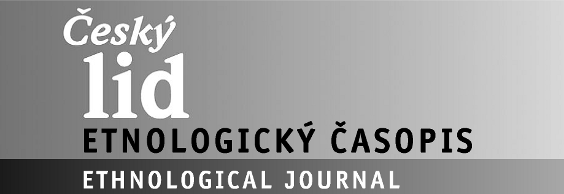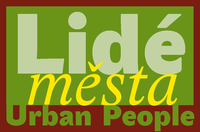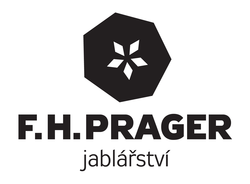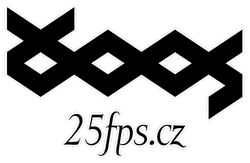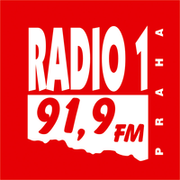We would like to invite you to Echoes of Antropofest in Brno. It starts at Monday 11th May from 5pm in Cafe Falk, Gorkeho street. You can watch Common Roads, Ulice spojuje a Lakros - after this movie will be discusion with authors.
INTRODUCTION
Antropofest is an international festival of movies with social anthropological themes.
Festival is held by eponymous NGO, formed by social anthropology graduates. The goal of the festival is to introduce the general audience to the movies that could also be one of the important study instruments of our domain. These specific documents will allow us to learn about the life of various human communities, social groups or individuals around the world.
During the festival we will hold debates on current projections and there will be also other accompanying programme.
We are looking forward to you!
NEWS
Echoes of Antropofest in Pardubice are today. It starts at 7pm in Klub 29. You can watch Ulice spojuje (discussion with director will be follow after movie), Orchard Keepers and Honey.
We apologize, but the screening of Bertsolari movie is cancelled.
Workshops "Lakros - Ways of seeing" a "Common Roads - reaserch and production context"and projection of movie Bertsolari will be in Café Jedna in National Gallery, Dukelských hrdinnů 530/47, Praha 7.
We are pleasured that we can welcome to Antropofest 2015 these guests: Livia Šavelková and Milan Durňak (Lacrosse), Lana Askari (Haraka Baraka), Tommi Mendel (Common Roads), Adélu Košařová (Odpad na talíři), Anna Dvořáková (Ulice spojuje), MIchal Pavlásek (Druhé Vojvodovo), Frode Storaas (The Go-Between), Christine M. Janney (Living Quechua) and Libor Dušek - author of the exhibition.
SCHEDULE
29.01.2015
| 20:00 | Opening Ceremony |
29.01.2015
| 20:05 | Lakros - to je způsob života |
30.01.2015
| 18:00 | Výstava "Trojí tvář Váchánu" |
| 19:00 | Growing Soul - My daughter´s Ritual Journey |
| 19:30 | The Orchard Keepers |
| 20:00 | Haraka Baraka |
| 20:30 | Discussion and Break |
| 21:00 | Common Roads - Pilgrimage and Backpacking in the 21st Century |
| 22:30 | Discussion |
31.01.2015
| 14:00 | Lakros – způsoby pohledu, Café Jedna |
| 15:00 | Common Roads - reaserch and production context, Café Jedna |
| 17:15 | Odpad na talíři |
| 17:30 | Ulice spojuje |
| 17:35 | Discussion and Break |
| 17:50 | What Life is like here |
| 18:20 | Druhé Vojvodovo: myslet obrazem |
| 18:50 | Discussion and Break |
| 19:15 | Afluentes |
| 19:40 | Living Quechua |
| 20:00 | Discussion and Break |
| 20:30 | The Go-Between - Afar of Ethiopia |
| 21:05 | Break |
| 21:25 | The Puppet´s Cemetery |
| 21:40 | Honey |
| 22:20 | Closing ceremony |
01.02.2015
| 14:00 | Bertsolari |
MOVIES
LIVING QUECHUA
USA, 2014, 18 min
Ch.M. Janney
31.01.2015 19:40
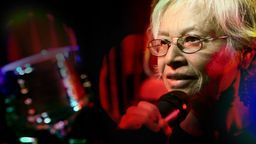 Elva Ambía Rebatta’s first language is Quechua, but when she left her town in Peru as a young woman to find work in the United States, speaking Spanish and English became critical for her to survive. While Quechua – a language indigenous to South America – continues to be spoken around the world as a result of such migration stories, UNESCO and other initiatives recognize it as an endangered language. Now in her seventies, Elva decides to help cultivate a Quechua-speaking community in New York City. Living Quechua follows Elva through the challenges and successes of trying to keep Quechua alive.
Elva Ambía Rebatta’s first language is Quechua, but when she left her town in Peru as a young woman to find work in the United States, speaking Spanish and English became critical for her to survive. While Quechua – a language indigenous to South America – continues to be spoken around the world as a result of such migration stories, UNESCO and other initiatives recognize it as an endangered language. Now in her seventies, Elva decides to help cultivate a Quechua-speaking community in New York City. Living Quechua follows Elva through the challenges and successes of trying to keep Quechua alive.
Director, production, camera, script, edit: Christine Mladic Janney
Language of dialogues: Spanish, Quechua, English
Language of subtitles: English, Czech
Christine Mladic Janney is a Brooklyn-based filmmaker, photographer and digital media maker. She is currently pursuing a PhD in Sociocultural Anthropology and certificate in Culture and Media at NYU.
Festival:
Margaret Mead Film Festival, New York City, USA
THE GO-BETWEEN - AFAR OF ETHIOPIA
Norsko, 2014, 37 min
F. Storaas, R. Scott, G. Kassa
31.01.2015 20:30
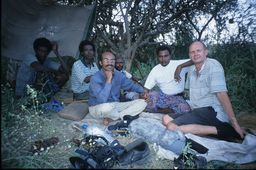 A woman is reported killed - another case for Hussein.The Islamic pastoral Afars inhabit the north eastern rangelands of Ethiopia. Some have settled in towns and trade centres where also the Ethiopian government is present with the police and other government officials. Many Afars have a foot in both sectors, having a home in town while maintaining close contact with their nomadic relatives. Hussein Hayie has a government position as Peace and Security officer. His work is to judge whether an incident should be handled as a criminal case for the police or be left as a case to be solved the traditional way by the elders of the clans. The Afar political organization is based on both territory and kinship. The political institutions are geared towards social control and the resolution of conflicts. The tribal leaders are often called upon to intervene before a small matter escalates to homicide and if homicide occurs, to work out agreements of compensation in order to avoid blood-feuds. The film follows Hussein Hayie in town and when he visits his families in the nomadic camps. As a government employee he is continuously on duty and in the film we see how he is called to act.
A woman is reported killed - another case for Hussein.The Islamic pastoral Afars inhabit the north eastern rangelands of Ethiopia. Some have settled in towns and trade centres where also the Ethiopian government is present with the police and other government officials. Many Afars have a foot in both sectors, having a home in town while maintaining close contact with their nomadic relatives. Hussein Hayie has a government position as Peace and Security officer. His work is to judge whether an incident should be handled as a criminal case for the police or be left as a case to be solved the traditional way by the elders of the clans. The Afar political organization is based on both territory and kinship. The political institutions are geared towards social control and the resolution of conflicts. The tribal leaders are often called upon to intervene before a small matter escalates to homicide and if homicide occurs, to work out agreements of compensation in order to avoid blood-feuds. The film follows Hussein Hayie in town and when he visits his families in the nomadic camps. As a government employee he is continuously on duty and in the film we see how he is called to act.
Directors: Frode Storaas, Rolf Scott, Getachew Kassa
Production: Universiy Museum of Bergen, Norway
Language of dialogues: Afar, Amharic
Language of subtitles: English, Czech
Frode Storaas, professor, University Museum of Bergen, Norway
Rolf Scott, PhD-candidate, University of Bergen, Norway
Getachew Kassa, Associate professor, Addis Ababa University
Festivals (selection):
GIEFF in Gottingen, Germany
EASA in Tallllin, Estonia
NAFA in Island
AAA in Washington DC, USA
Ethnographic Cinema, Moscow
VÝSTAVA "TROJÍ TVÁŘ VÁCHÁNU"
Váchán, 2014, 60 min
Libor Dušek
30.01.2015 18:00
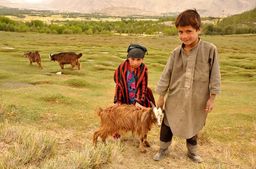 Social anthropologist Libor Dusek conduct field research in the high mountains of Central Asia (Pamir, Hindu Kush) for ten years. His photographs capture ethnic group of Wakhan in the territory of three countries: Afghanistan, Pakistan and Tajikistan in August-October 2014.
Social anthropologist Libor Dusek conduct field research in the high mountains of Central Asia (Pamir, Hindu Kush) for ten years. His photographs capture ethnic group of Wakhan in the territory of three countries: Afghanistan, Pakistan and Tajikistan in August-October 2014.
PARTNERS
Partners of AntropoFEST are
- Český lid - etnografický časopis
- Lidé města
- Sociological review
- Pražský přehled kulturních pořadů
- F. H. Prager - český jablečný cider
- Švýcarské velvyslanectví v Praze
- 25fps
- NaFilmu.cz
- Radio 1
Thank you!
CONTACT
Don't hesitate and ask us or just send your movie (with apllication form) on email: [email protected]


